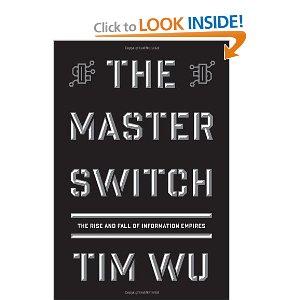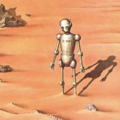Everything old is new again.
4 stars
If you love reading about "enshittification," buckle in tight, because you're gonna LOVE The Cycle.
Tim Wu presents a comprehensive history of the rise and fall of information industries in the U.S., and illustrates again and again how unchecked corporate power strangles innovation and impedes progress at every turn. He illustrates his theory of "The Cycle" (in which open systems consolidate and then choke competition and disruption) with the development of film, radio, television, and telephone industries. (Reading this book will certainly make you want to dig up some dead white guys and punch them in the face.)
Since this book was published in 2010, I was a little worried that it would be frustratingly out of date. It's not; the history is solid, his theories are good. But towards the end I definitely had a sinking feeling in my stomach while reading. Wu proposes that the nature of the …
If you love reading about "enshittification," buckle in tight, because you're gonna LOVE The Cycle.
Tim Wu presents a comprehensive history of the rise and fall of information industries in the U.S., and illustrates again and again how unchecked corporate power strangles innovation and impedes progress at every turn. He illustrates his theory of "The Cycle" (in which open systems consolidate and then choke competition and disruption) with the development of film, radio, television, and telephone industries. (Reading this book will certainly make you want to dig up some dead white guys and punch them in the face.)
Since this book was published in 2010, I was a little worried that it would be frustratingly out of date. It's not; the history is solid, his theories are good. But towards the end I definitely had a sinking feeling in my stomach while reading. Wu proposes that the nature of the internet makes it both vulnerable and resistant to corporate control, and he's hopeful that net neutrality will win the day. He places his hopes in Google and its ideals (yikes), and also on effective government regulation (reading this the week that the Supreme Court gutted the federal government's regulatory powers: double yikes).
At times it's incredibly discouraging to read this book in 2024; it's much harder to muster up any hope that the internet will break free of this cycle. I would love a new edition of this book with an afterword by Wu, written today. The future does not look as bright in the year of our lord 2024.

